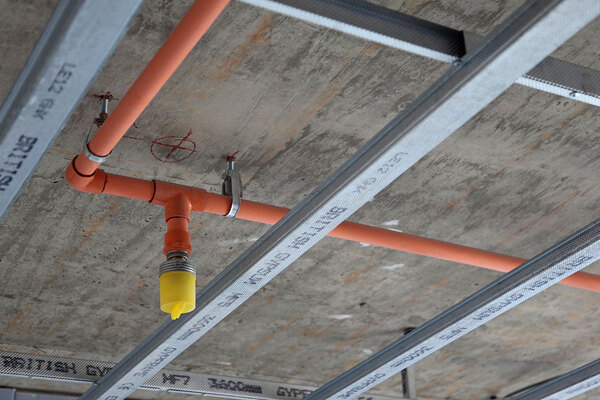You are viewing 1 of your 1 free articles

Kate Henderson is chief executive of the National Housing Federation
Why we are urging the government to recommit to net zero
It is vital that net zero does not slip down the political agenda and that housing associations have the funding they need to deliver their role in meeting this important target, writes Kate Henderson
In 2008, the UK government committed to reaching net zero by 2050 with cross-party support for the Climate Change Act. At the time, this ambitious target felt part of a natural impetus for the country to collectively take action to tackle the existential threat of climate change.
As we headed into the last general election in 2019, delivering net zero was centre stage in the political parties’ manifestos.
There was a more positive conversation about taking action on climate change in the media and it felt like there was real ambition about achieving energy-efficiency savings, improving energy security and supporting the move to a low-carbon economy, with the government setting out a clear commitment of £3.8bn for the Social Housing Decarbonisation Fund.
However, just a few years on, despite the evident danger of a climate emergency and the multifaceted benefits of decarbonising the country’s homes, a concerning and growing narrative is now placing net zero at the heart of the culture wars.
This is casting doubt not only on whether net zero is feasible, but whether it is even desirable and risks us back tracking on a critical target that would benefit us all.
It is vital that net zero does not slip down the political agenda and that housing associations have the funding they need to deliver their role in meeting this important target.
For this reason, today I have written open letters to both chancellor Jeremy Hunt and energy security and net zero secretary Claire Coutinho to urge them to recommit to the government’s net zero manifesto pledge in the upcoming Autumn Statement and release the full £3.8bn Social Housing Decarbonisation Fund to help us decarbonise the country’s social housing.
“While we understand the government is facing unprecedented financial challenges, it’s vital that our sector has access to the funds it needs to meet this legally binding target”
Decarbonising our social housing stock is a crucial part of the net zero journey and must remain a priority for both this and the next government. According to research from the National Housing Federation (NHF), England’s homes produce more carbon each year than all the country’s cars.
Alongside massively reducing our annual carbon emissions, retrofitting our homes provides clear and immediate cost benefits for residents.
A NHF report last November found that insulating homes to have an Energy Performance Certificate rating of C would save social housing residents on average £567 on their heating bills, reducing them by 42%.
Housing associations are committed to this work and I have seen many impressive retrofit initiatives taking place across the country. But it comes at a cost. Our sector is already planning to invest £70bn by 2050 in the fabric, heating systems and components of their existing homes.
Analysis by Savills estimates that to decarbonise all existing housing association homes. we’d need at least an additional £36bn of investment on top of this – a figure now likely to be higher due to inflation.
While we understand the government is facing unprecedented financial challenges, it’s vital that our sector has access to the funds it needs to meet this legally binding target.
“With reports of climate disasters across the world, net zero is too fundamental to our future to risk being a political pawn”
The Social Housing Decarbonisation Fund has provided social landlords with a strong start to filling the gap in funds, and has resulted in several pilot schemes that demonstrate the positive impact retrofit has on residents’ lives. However, so far the government has only released around a third of the £3.8bn fund, over several rounds, and this has limited the scope and scale of retrofit projects that have been delivered.
Releasing the full fund would not only provide certainty for housing associations, allowing them to plan and contract for the large-scale projects that are needed, it would in turn unlock supply chains and provide thousands of highly skilled jobs for years to come, boosting our economy.
With reports of climate disasters across the world, net zero is too fundamental to our future to risk being a political pawn. Making homes more energy efficient is a win-win for our planet, our residents and our economy. We urge the government to reaffirm its commitment to tackling climate change and recognise both the immediate and long term benefits of decarbonising our homes.
Kate Henderson, chief executive, National Housing Federation
Sign up for our asset management newsletter
Already have an account? Click here to manage your newsletters












